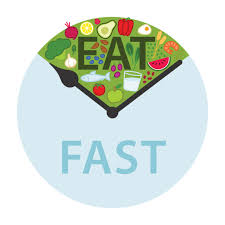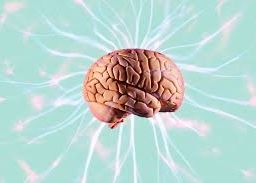
How Intermittent Fasting Works: Understanding the Basics
Curious about intermittent fasting? You’re in the right place! In this guide, we’ll unravel the mysteries behind this popular eating pattern, delving into its benefits, challenges, and everything you need to know to make an informed decision about integrating it into your lifestyle.

In recent years, intermittent fasting has gained significant attention as a popular dietary trend. It promises a wide range of health benefits, from weight loss to improved mental clarity. But with so many diet fads out there, it’s important to separate fact from fiction. We’ll now dive deep into the world of intermittent fasting to explore its potential benefits and pitfalls. So, grab a cup of tea and join us on this enlightening journey!
Understanding Intermittent Fasting:
Intermittent fasting is not a diet plan in the traditional sense. It’s more of an eating pattern that involves alternating periods of fasting and eating within a specified window of time. There are several popular approaches to this diet plan, including the 16/8 method (fasting for 16 hours and eating within an 8-hour window) and the 5:2 method (eating normally for five days and restricting calories on two non-consecutive days).
Weight Loss and Metabolic Effects:

One of the main reasons people turn to intermittent fasting is its potential for weight loss. When you limit your eating window, you naturally consume fewer calories, which can lead to a calorie deficit and subsequent weight loss. Moreover, fasting can also have positive effects on metabolism. Studies have shown that this can enhance insulin sensitivity, promote fat burning, and boost human growth hormone (HGH) levels. However, it’s important to remember that weight loss is not guaranteed for everyone, and individual results may vary.
Health Benefits Beyond Weight Loss:
Beyond shedding a few pounds, this may have additional health benefits. Research suggests that intermittent fasting can improve cardiovascular health by reducing blood pressure, cholesterol levels, and inflammation markers. Some studies also indicate that fasting may have positive effects on brain health, potentially reducing the risk of neurodegenerative diseases like Alzheimer’s and Parkinson’s. However, it’s worth noting that more research is needed to fully understand the long-term effects on these conditions.
Mental and Emotional Well-being:
The effects of intermittent fasting extend beyond the physical realm. Many proponents of this eating pattern report improved mental clarity, focus, and productivity during fasting periods. Some even claim that fasting has positive effects on mood, reducing symptoms of anxiety and depression. While the exact mechanisms behind these benefits are not yet fully understood, they may be related to increased levels of brain-derived neurotrophic factor (BDNF), a protein that supports brain health and cognitive function.

Potential Challenges and Considerations:
While intermittent fasting holds promise, it’s not without its challenges. Some individuals may find it difficult to adjust to fasting periods, especially during the initial stages. For those with underlying health conditions or a history of disordered eating, consulting with a healthcare professional is crucial before embarking on any dietary changes. Additionally, intermittent fasting may not be suitable for everyone, such as pregnant or breastfeeding women, individuals with diabetes, or those on certain medications.
Intermittent fasting has captured the attention of many health enthusiasts due to its potential benefits for weight loss, metabolism, and overall well-being. While research on the topic is ongoing, the existing evidence suggests that intermittent fasting can be a viable approach for certain individuals. However, it’s essential to approach any dietary change with caution and to listen to your body’s unique needs. Consulting with a healthcare professional can provide personalized guidance and ensure that intermittent fasting is a safe and suitable option for you.

Remember, no single diet or eating pattern is a magic bullet. The key to a healthy lifestyle lies in finding an approach that is sustainable, balanced, and enjoyable. Whether you choose intermittent fasting or another dietary strategy, the goal should always be to nourish your body and mind in a way that supports your overall.
Disclaimer: The information provided in this content is for general informational purposes only. It is not intended as medical or healthcare advice, diagnosis, or treatment. Always seek the advice of a qualified healthcare professional with any questions you may have regarding a medical condition or healthcare decisions.















